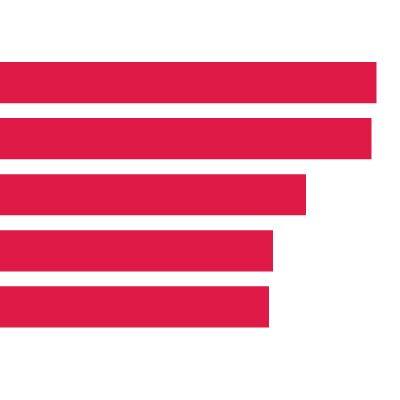Inequalities in housing affordability
28 March 2024

- Over a quarter (26%) of people on the lowest incomes have high housing costs relative to their income.
- 16% of 16 to 24-year-olds, and 13% of 25 to 34-year-olds have high housing costs relative to their income.
- A higher proportion of people from all minority ethnic groups have high relative housing costs (14%–22%) compared to white people (8%).
Housing affordability matters for health, both directly and indirectly. Difficulty paying the rent or mortgage can harm people’s mental health, while spending more on housing leaves less for other essentials that can be beneficial for health, such as food and social participation.
This chart shows the groups of people who are more at risk of living in a household that has to spend more than a third of its income on housing costs. It shows comparatively how the proportion has changed in terms of age, ethnicity and income over 10 years.
- 16% of people aged 16–24 and 13% of people aged 25–34 spent more than a third of their income on housing costs in 2021/22. This compares to 11% of 35 to 44-year-olds and 8% of 45 to 54-year-olds. This is partly because older working-age groups tend to have higher incomes and are more likely to have lower housing costs because they own their homes.
- Over the past decade, housing affordability has declined across all age groups, except for people aged between 16–24 years, while it has increased the most for people aged between 35–64.
- A higher proportion of people in all minority ethnic groups have high relative housing costs compared to white British people. Over a fifth (22%) of people from black, black British, Caribbean or African groups as well as people from ‘other’ ethnic groups spend more than a third of their income on housing. This is also the case for 16% of people from mixed or multiple ethnic groups and 14% for people from Asian or Asian British groups. This compares to only 8% of white people.
- 26% of households on the lowest incomes spent more than a third of their income on housing costs in 2021/22, compared with only 2% of households in the top income quintile (the top 20% of incomes).
- Over the last 10 years, the percentage of people on the lowest incomes who pay more than a third of their income on housing has increased by 3 percentage points, while for people on the highest incomes it has slightly decreased.
- Housing affordability is measured using housing costs (net of housing benefit) as a proportion of a household’s total income.
- Housing costs are considered unaffordable if they absorb more than a third of a household’s income.
- Housing costs include rent and mortgage interest payments, utility bills and council tax, as well as ground rent and service charges for owner-occupied homes.
- Data are pooled over three financial years to maximise sample sizes.
- Data for 2020/21 are not included in line with the Department for Work and Pensions’ guidance related to data quality during the COVID-19 pandemic.
- 2021/22 data have been affected by the pandemic and are subject to additional uncertainty. They should be viewed with caution and in line with broader trends.
Source: Health Foundation analysis of Department for Work and Pensions, Households below average income, UK, 2011/12 and 2021/22







